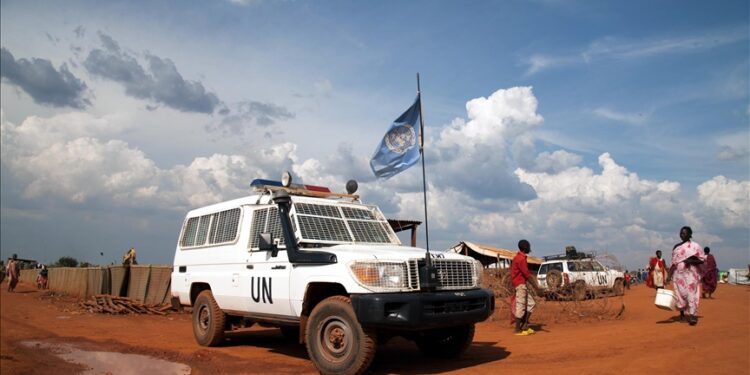WASHINGTON
UN officials on Tuesday warned that South Sudan’s fragile peace process is deteriorating amid escalating violence, political paralysis, and a worsening humanitarian crisis.
Addressing the Security Council, Jean-Pierre Lacroix, UN under secretary-general for peace operations, said that in recent months, developments in South Sudan had “continued to move in a negative and possibly dangerous direction,” with a marked increase in ceasefire violations, including widespread aerial bombardments and clashes among signatories to the 2018 Revitalized Peace Agreement.
“Despite these challenges and a breaking point becoming visible, the Revitalized Peace Agreement remains the only viable framework for long-term peace and stability in South Sudan,” Lacroix said, referring to the agreement signed by President Salva Kiir, rival Riek Machar, and other political parties.
Lacroix reminded the council members that the transitional period of the peace agreement is expected to conclude after elections in December 2026, but he cautioned that “credible and peaceful elections within the timelines of the peace agreement appear increasingly improbable.”
He urged South Sudan’s political leaders to recommit to dialogue and consensus-building to prevent a total collapse of the peace process.
Humanitarian situation remains ‘catastrophic’
Lacroix described the humanitarian situation as “catastrophic,” with more than 7.5 million people facing acute food insecurity; 28,000 are at risk of famine.
Severe flooding has displaced over a million, he said, adding that over 1.2 million returnees and refugees from Sudan have crossed into a country already struggling to feed its own.
“Human suffering during this volatile situation continues to mount. Conflict-related sexual violence, arbitrary detentions, and extrajudicial killings persist, with limited accountability,” Lacroix said, urging all parties to immediately cease hostilities.
Lacroix concluded his remarks with a plea for renewed regional and international engagement to keep South Sudan’s fragile peace process alive.
“Implementation of the Revitalized Agreement remains South Sudan’s only path to stability and lasting peace,” he said.
“But time is running dangerously short, and there is an urgent need to bring the peace process back on track.”
He called on the parties to “take a citizen-centric approach, reinvigorate their commitment to political inclusion, and cease unilateral actions,” while urging the global community to remain united and engaged.
Women and girls are ‘hit hardest every day’
Sima Sami Bahous, the UN Women executive director, said South Sudan’s path to peace and development is marred by political instability, humanitarian crises, and socioeconomic fragility.
“The country contends with weakened institutions and struggles with social cohesion, all as the ongoing war in neighboring Sudan further destabilizes its fragile transition,” Bahous told the council.
As always in crisis and conflict, she said women and girls are “hit hardest every day.”
“They face relentless climate challenges, food insecurity, sexual violence, abductions and more,” Bahous said.
South Sudan has one of the highest rates of gender-based violence in the region, with an estimated 2.7 million people at risk, she stressed.
Bahous also reminded the member states that peacekeeping “disinvestment” will impact women and girls most. “We owe them better.”
She urged the “norm” of women’s participation at all levels of social and political life in South Sudan.
“There is simply no more proven pathway to sustainable peace than women’s leadership and meaningful inclusion in conflict resolution,” she added.





